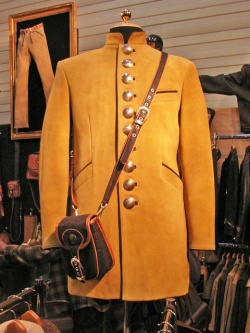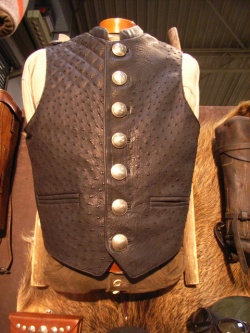Leather repair
Contents
- 1 Leather repair - leather repairs
- 2 Shoemaker - Cobbler
- 3 Upholsterer
- 4 Saddler - Trimmer
- 5 Tailors - Leather clothing manufacturer
- 6 Bag repair specialists
- 7 Leather repair shops
- 8 Videos about leather repair methods in the leather repair workshop
- 8.1 How to mix leather colours
- 8.2 How to dull leather colours
- 8.3 How to apply leather colour
- 8.4 The colouring of leather
- 8.5 COLOURLOCK Leather Fresh in professional use
- 8.6 Leather colours with metallic effects
- 8.7 Colouring leather furniture with fat stains
- 8.8 Using COLOURLOCK Blocker on ink stains
- 8.9 The art of colouring porous smooth leather
- 8.10 The patination of leather
- 8.11 Stain removal on leather clothing
- 8.12 Ballpoint pen strokes on aniline leather
- 8.13 COLOURLOCK Scratch Away
- 8.14 Copying the grain structure of leather
- 8.15 The COLOURLOCK Mobile Leather Repair Workstation
- 9 Videos about cleaning leather in the leather workshop
- 10 Videos about leather care products in the leather workshop
- 11 Videos about leather repair methods for everyone
- 12 Other professions that repair leather
- 13 Additional information
Leather repair - leather repairs
Leather repairs are most diverse services. They can be the work of a shoemaker, cobbler, an upholsterer, a saddler, a trimmer or a tailor. However, there are also leather repair companies that specialise in repairing leather without getting involved in any stitching work. These will repair minor damages (rips, tears, scuffs etc.) and colour leather without replacing it.
Do leather repairs make sense? Products made of quality leather are exceptionally durable. With shoes, the sole, rather than the upper leather, suffers and, for many leather objects the seams or zips get damaged first. Shoemakers, saddlers, upholsterers or professional leather repairers can significantly extend the life of the leather object. Because of the durability of leather, repairs make ecological and economic sense. An object with a long life span is more sustainable than having to constantly replace it with a new version.
Shoemaker - Cobbler
Shoemakers and cobblers carry out all kinds of leather repairs. Leather is polished, soles are replaced, shoes and boots are expanded, zips are changed and repaired, belts are shortened or holes are punched. You can always go to a shoemaker if you have problems with leather clothing of any kind, including shoes, trousers, jackets, bags, suitcases, belts, hats or leather accessories. If they cannot help, they will be able to recommend someone who can.
Upholsterer
An upholsterer is specialised in upholstered furniture. Previously, re-upholstering furniture was a normal activity. But, today the cost of recovering an item with leather is very expensive and can be the same as buying a new piece of leather furniture. As a result, upholsterers are often asked to repair a certain panel of the seat or make other repairs to the furniture.
Saddler - Trimmer
Trimmers specialise in re-covering upholstery in vehicles. It is often necessary to change the worn-out side bolsters of the car seats. Some saddlers also offer smaller colour repair services because new leather cannot always be purchased in the same colour or in smaller quantities. A saddler on the other hand carries out traditional works on saddles.
Tailors - Leather clothing manufacturer
Tailors repair leather clothing of all kinds with needle and thread. Ripped buttons, damaged zips, the exchange of a collar or shortening, stretching or lengthening are typical works. Only a few companies in developed countries are still specialised in the new production of leather clothing. They usually also carry out modifications and repairs.
Leather coat of deer leather and vest of ostrich leather fromwww.wildfangdesign.de.
Bag repair specialists
A bag repair specialist is specialised in bags and cases. From production to the exchange of handles, belts and locks, everything falls into this area.
Leather repair shops
Leather repair shops that repair leather without needles and thread are unusual and deal with all kinds of leather damages. Historically there was no such business.
Such leather repair companies must always assess the leather damage in terms of whether the leather is still stable and durable so that a leather repair is still worthwhile for the customer. If a repair is no longer useful, a saddler or upholstery has to replace the leather. Often, the saddler or upholstery need a leather colouring company, which helps to adapt a suitable leather, which is no longer available in the leather trade. Especially when repairing old leather of classic cars there should be a cooperation between a leather repair company and a saddlery.
Specialists for leather repair products, training and advice:
![]() -> COLOURLOCK
-> COLOURLOCK
![]() -> In Germany: www.lederzentrum.de
-> In Germany: www.lederzentrum.de
![]() -> Rest of the world: partners worldwide
-> Rest of the world: partners worldwide
Leather repair shop at work.
No simple work. Two-tone colouration in an old Chesterfield chair.'
Cut in leather: Filling, repair of the grain structure, colouring.
Typical leather repair on a Porsche seat, which you can repair yourself.
Leather repairs for the professional or for self-made.
Crack in perforated leather from a Porsche seat. Such a repair is not easy and a scar will remain.
Videos about leather repair methods in the leather repair workshop
How to mix leather colours
The leather repair workshop: Colour mixing has to be learned by experience.
How to dull leather colours
The leather repair workshop: For extremely dull leather, COLOURLOCK Duller has to be added to the leather colour.
How to apply leather colour
The leather repair workshop: The correct procedure of leather colour application.
The colouring of leather
The leather repair workshop: Colouring leather in the leather workshop according to the customer requirements.
COLOURLOCK Leather Fresh in professional use
The leather repair workshop: This video shows how to apply COLOURLOCK Leder Fresh professionally and what to consider.
Leather colours with metallic effects
The leather repair workshop: Metallic leather.
Colouring leather furniture with fat stains
The leather repair workshop: Fat stains on leather furniture.
Using COLOURLOCK Blocker on ink stains
The use of COLOURLOCK Blocker in cases of dye transfer on leather, colour migration, tyre marks, adhesive migration, black mould etc. in leather.
The art of colouring porous smooth leather
The leather repair workshop: The refreshing of a thick aniline leather in the leather workshop by preserving the patina.
The patination of leather
The leather repair workshop: The patination of classic car leather.
Stain removal on leather clothing
The leather repair workshop: The removal of sweat stains in highly sensitive aniline leather using leather colour.
Ballpoint pen strokes on aniline leather
How do I remove ballpoint pen strokes from aniline leather?
COLOURLOCK Scratch Away
COLOURLOCK Scratch Away – The scratch remover for aniline leather, oiled leather and nubuck.
Copying the grain structure of leather
The leather repair workshop: The imprinting of the leather grain.
The COLOURLOCK Mobile Leather Repair Workstation
The leather repair workshop: Leather processing companies often have large halls. The COLOURLOCK Workstation is for easy access to the leather problem.
Videos about cleaning leather in the leather workshop
The use of COLOURLOCK Cleaners in the leather workshop
The leather repair workshop: This video shows what to pay attention to when cleaning pigmented leather.
The use of COLOURLOCK Cleaners on perforated leather
The leather repair workshop: This video shows what to pay attention to when cleaning perforated leather.
The leather repair workshop: The use of COLOURLOCK Cleaners on leather, artificial leather and Alcantara.
The use of solvent cleaners in the leather workshop
The leather repair workshop: The use of COLOURLOCK Leather Cleaning Spirit, COLOURLOCK GLD Solvent and COLOURLOCK Solvent Cleaner.
Videos about leather care products in the leather workshop
The use of COLOURLOCK Leather Shield and COLOURLOCK Leather Protector
Leather care information: COLOURLOCK Leather Shield is recommended for pigmented new leather and the COLOURLOCK Leather Protector for older, pigmented smooth leather.
The use of COLOURLOCK Leather Shield in the leather workshop
The leather repair workshop: The leather colour has to be protected against wear and dirtying.
Videos about leather repair methods for everyone
How to repair furniture leather.
How to repair tears and cracks.
The repair of brittle leather.
How to repair colour peeeling: COLOURLOCK LEATHER CLEANING SPIRIT, COLOURLOCK LEATHER SANDING PAD, COLOURLOCK LEATHER FRESH DYE and COLOURLOCK LEATHER SHIELD.
Other professions that repair leather
- Restorers deal with the preservation and restoration of antique leather objects (leather museum)
- Bookbinders and book restorers deal with the restoration and repair of valuable leather books.
Additional information
![]() -> COLOURLOCK - Training for leather repairs for professionals
-> COLOURLOCK - Training for leather repairs for professionals
![]() -> COLOURLOCK
-> COLOURLOCK
![]() -> In Germany: www.lederzentrum.de
-> In Germany: www.lederzentrum.de
![]() -> Rest of the world: partners worldwide
-> Rest of the world: partners worldwide





































 a kotori web solution
a kotori web solution